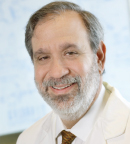Chimeric antigen receptor (CAR) T-cell therapy continues to have impressive showings in patients with aggressive hematologic malignancies and no other good treatment options. Interim results of the pivotal phase II ZUMA-1 trial, the first multicenter trial of the experimental CAR T-cell therapy KTE-C19, demonstrated complete and durable remissions in some patients with aggressive diffuse large B-cell lymphoma (DLBCL) and other lymphomas refractory to chemotherapy or recurring after autologous stem cell transplant.
At an interim analysis of ZUMA-1, more than 75% of patients with DLBCL responded to KTE-C19, and nearly half had a complete response. Remissions are ongoing after 12 months on the phase I ZUMA-1 trial, and some patients treated on an earlier single-institution trial at the National Cancer Institute are still in complete response after several years.

This is the first pivotal multicenter study of anti-CD19 CAR T cells in refractory aggressive non-Hodgkin lymphoma.— Sattva S. Neelapu, MD
Tweet this quote
“The complete response rate is sixfold higher compared with historical outcomes in this patient population,” said co-lead author Sattva S. Neelapu, MD, of The University of Texas MD Anderson Cancer Center, Houston, who presented these results at the late-breaker session at the 2016 American Society of Hematology (ASH) Annual Meeting & Exposition.1
Dr. Neelapu continued: “This is the first pivotal multicenter study of anti-CD19 CAR T cells in refractory aggressive non-Hodgkin lymphoma. We had a 99% success rate in manufacturing the genetically engineered T cells, with a 17-day turnaround time.”
Although these are exciting results (and in fact an audience member said, “This is the best study at the meeting,”), CAR T-cell therapy requires skill and education to deliver and can be tough on patients. Adverse events of concern are cytokine-release syndrome, which is potentially fatal, and neurologic events.
“It is critical to educate physicians and staff at different centers on how to manage the side effects,” Dr. Neelapu emphasized. “The ZUMA-1 investigators had extensive education in the management of adverse events before the study was conducted. It is critical for all providers who take care of these patients to be familiar with management algorithms for cytokine-release syndrome and neurologic events before proceeding with CAR T-cell treatment.”
CAR T-cell therapy utilizes each patient’s own T cells, extracted by leukapheresis, and the patient undergoes conditioning chemotherapy. The T cells are sent to a processing facility, where they are genetically engineered with CD19 receptors that seek out cancer cells; the T-cell population is then expanded and infused back into the patient. KTE-C19 and CTL-019 are engineered to target the CD19 antigen. Manufacturers of both agents are expected to file for U.S. Food and Drug Administration (FDA) approval in 2017.
Other groups are investigating CAR T cells directed to different antigens, including CD20 and CD44.
Study Details
ZUMA-1 enrolled 111 patients with DLBCL and primary mediastinal B-cell lymphoma or transformed follicular lymphoma, and 101 received KTE-C19 infusions. Among the 111 patients enrolled, manufacturing was successful in 99%, 91% received treatment (10 could not be treated), and the turnaround time was about 17 days from leukapheresis to delivery of the KTE-C19 product to the clinical site.
About 50% of patients were 60 years old, 44% had high- or high-intermediate-risk disease, 85% had stage III or IV disease, 77% were refractory to second-line therapy, and 20% relapsed after prior therapy, and 3% were refractory to first-line therapy.
Key Findings
The interim analysis was based on data cutoff as of August 24, 2016; 93 patients (73 with DLBCL, 20 with other forms of lymphoma) were evaluable for overall response at 1 month; 62 of these patients (51 with DLBCL) were evaluable for the prespecified interim analysis endpoint of best overall response rate with at least 3 months of follow-up.
Novel Immunotherapy for Aggressive Hematologic Malignancies
- Anti-CD19 CAR T-cell therapy achieved complete and durable responses in aggressive DLBCL and other lymphomas, according to interim results of a pivotal phase II trial.
- The manufacturer of this therapy is expected to file for FDA approval in 2017.
- Adverse events continue to be a challenge with this therapy, so experience and education are important in managing patients being treated with this therapy.
The new findings report positive results of the 51 patients with diffuse large B-cell lymphoma evaluable for best overall response rate with at least 3 months of follow-up. The overall response rate in these patients was 76%, and the rate of complete response was 47%.
In subgroups of special interest, the complete response rate was 75% in 12 patients who relapsed after autologous stem cell transplant and 47% (23 of 49) in patients refractory to second-line or higher therapy. “The treatment effect was similar across all subgroups, and complete responses are durable in the majority of the patients,” Dr. Neelapu told conference listeners.
Toxicity
The safety analysis was based on 93 patients—73 with DLBCL who received CAR T-cell therapy at least 1 month before. “Adverse effect management was effectively implemented across 22 sites, most with no prior CAR T-cell therapy experience,” Dr. Neelapu revealed.
The rate of grade 3 or higher adverse events was 93% in the DLBCL cohort and 90% in the cohort with primary mediastinal B-cell lymphoma or transformed follicular lymphoma, the majority of these events were due to cytopenias related to the conditioning chemotherapy. Grade 3 or higher cytokine-release syndrome occurred in 14% and 10%, respectively. Grade 3 neurologic events occurred in 25% and 45%, respectively. Grade 3 or higher neurologic events occurred in 25% and 45%, respectively. Cytokine-release syndrome and neurologic events were generally reversible.
Audience interest in this study was high, judging by the many questions following Dr. Neelapu’s presentation. Attendees asked about how to deliver CAR T cells, the lack of durability of partial responses, and why patients experience neutropenia and cytopenia. Dr. Neelapu’s response to the latter question was that cytopenias are expected because of the conditioning chemotherapy. “The best conditioning regimen is an ongoing area of study. Most investigators are using cyclophosphamide and fludarabine,” he concluded.
Additional Comments

Andrew Zelenetz, MD
Speaking from the audience, Andrew Zelenetz, MD, of Memorial Sloan Kettering Cancer Center, New York, said the delay in getting CAR T cells to the patient is a concern. “The 3 weeks knock patients out of the picture who need immediate treatment.”
“The turnaround time is a big issue for patients with aggressive disease,” acknowledged Dr. Neelapu. “The good news is that of the 111 patients enrolled, 91% were able to be treated with this 17-day turnaround time.”

Selina Luger, MD
ASH session co-moderator, Selina Luger, MD, of the University of Pennsylvania, Philadelphia, who was not involved in the study, said that the responses are similar to those in other studies of CAR T-cell therapy and were not that surprising. “What is remarkable is not the actual effect, but the fact that they were able to do this in a multicentered fashion among many centers with no previous experience.”
“CAR T-cell therapy is not for the faint of heart. This novel technology can be applied effectively at many centers, even those with no experience in T-cell therapy. The hope is that we can bring this out to the broader community,” said ASH President Charles Abrams, MD, commenting on this abstract during a premeeting ASH webinar. Dr. Abrams is Director of the Blood Center for Patient Care and Discovery at the University of Pennsylvania and Children’s Hospital of Philadelphia. ■
Disclosure: Dr. Neelapu has served as an advisor and received research funding from Kite Pharma, the maker of KTE-C19 and sponsor of ZUMA-1. Dr. Luger reported no potential conflicts of interest.
Reference

